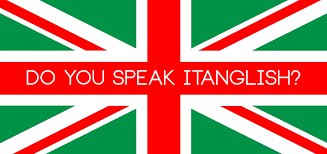The italian language like many other european languages has adopted many foreign words and names. In the past during the period of fascism the government had wanted to purify all foreign words or names in italian.
However nowadays the italian language has gone in the opposite direction and has many foreign terms. Nowadays English became the lingua franca in the world after the end of World War II because in the past England had a great colonial Empire and also the USA had companies that expanded all over the world. It also exported american culture through its music and films.
Italians unlike the french or the spanish, who want to protect their language with the use of legislation, prefer to use the original words or names and have no laws banning the use of these words.
Instead italian journalists and writers claim that many of the more modern words are untranslatable in italian.
In Italy exists the “Accademia della Crusca” in Florence that decides on any italian grammatical doubts and does not italianize every anglicism or foreign name for reasons due to globalization and simplicity.
Some examples of anglicisms that completely supplanted italian equivalents such as: “guardrail” instead of guardavia, “motel” instead of autostello, “permafrost” instead of permagelo, “baseball” instead of pallabase, “bob” (short for “bobsleigh”) instead of guidoslitta and “motocross” instead of motocampestre.
Other some examples of foreign toponyms that completely supplanted italian equivalents such as: “Mauritius” instead of Isola di Maurizio and “Seychelles” instead of Seicelle.
There are some examples of anglicisms that are alternated with italian equivalents such as: “tunnel” and galleria, “clown” and pagliaccio, “hotel” and albergo, “weekend” and fine settimana, “revolver” and rivoltella.
And finally there are some examples of italian equivalents that completely supplanted foreign toponyms such as: Londra instead of “London”, Parigi instead of “Paris” and Berlino instead of “Berlin”.
Today on the internet there are some forums, blogs and websites that talk about how to italianize every foreign word or name, and how to spread the use in everyday language.
Different voluntary organisations such as: “Cruscate” by “Achyra.org”, “Diciamolo in italiano” by Antonio Zoppetti, “Italofonia.info”, “Italiano urgente” by Gabriele Valle, “Campagna per salvare l’italiano” by Peter Doubt, “Dizionarietto di traducenti” by Giulio Mainardi and “Onde a vapore” by Diego Michielin.

(Daniel Saja, Edoardo Bianchi, Fabio Colombo, Officina025 ONLUS)